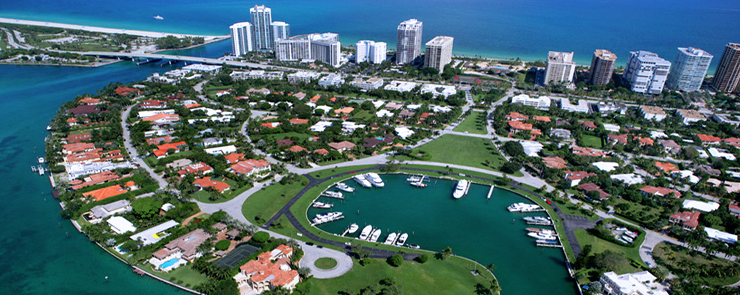To Buy or To Rent in Florida? Part II
Tuesday Mar 03rd, 2015
TO BUY OR RENT IN FLORIDA, PART II
Why you should think twice about buying in Florida
I came across two surprising statistics recently. The first was a report from the Florida Department of Tourism that 3.8 million Canadians visited the state in 2014. That's more than 10% of our entire population!
The second is related to the combeack in Florida's real estate industry since the credit crunch of 2008-09 caused prices of residential homes to plunge, in some cases by more than 50%. Valuations haven't come all the way back but the market was looking healthier than at any time since the Great Recession. A large part of the reason, one real estate broker said, was foreign buyers. Almost as an afterthought, it was mentioned that about 500,000 Canadians own property in Florida.
I know from personal experience that a lot of us have purchased a Florida residence. But half a million? That's a lot of loonies flowing south. It also means big profits for anyone who bought after the crash. Not only have Florida home prices rebounded, but the plunge in value of our currency means those U.S. dollar residences are worth up to 25% more than people paid for them, depending on the timing.
However, that doesn't mean you should grab the next flight to Miami with a suitcase full of loonies. The Florida housing market appears to have stabilized, at least for now, so more big gains like those we've seen are unlikely in the near future.
Plus, there are a lot of reasons to think twice before buying a Sunbelt property. Here are a few:
- Getting a mortgage is tough. If you have a decent credit rating, you can probably get a mortgage in Canada in about two weeks or less. In Florida, TD Bank warns that four to six weeks is the norm. Ever since the 2008 crash, U.S. banks have tightened up their credit checks significantly. Be prepared to supply accountant-verified information about your income for the past three years, all the costs relating to your Canadian home, all assets that have been "seasoned 60 days", passport/visa information and much more.
- They're wary of foreigners. Yes, a lot of Canadians own Florida property, but that doesn't make U.S. bankers less wary of us. We're asked to put up 30% of the house prices before we'll be considered for a mortgage loan (Americans only have to put down 20%). When it comes to credit history, we might as well be living on Mars. If you don't have a credit record in the U.S., you don't have one period. Although it can be difficult to get a mortgage through a U.S. bank, you do have the option of getting a mortgage through an American bank with a Canadian counterpart, such as TD Bank or Bank of Montreal (which is affiliated with Harris Bank), which will take your Canadian credit history into account.
- The loonie is down. Buying a distressed Florida property when the loonie was flying high was a true bargain. Now, with our dollar at around $1.25 (U.S.), it's another story entirely. That $200,000 Florida property will now cost $250,000 (Canadian). Suddenly, it may not look like such a great deal.
- Estate planning is a concern. The U.S. can't seem to figure out what to do about its estate tax laws. During the presidency of George W. Bush, the tax was phased out, only to be resurrected in 2011 under a sunset clause. Now it's back in force with a top rate of 40%. According to the website TaxTips.ca, a U.S. estate tax return must be filed if a Canadian dies with American assets worth more than $60,000. However, if your worldwide assets are less than $5.43 million (U.S.) your estate will likely not have to pay any estate tax. Your estate will be hit with a Florida probate tax. It's a good idea to get advice from a specialist in cross-border taxation before proceeding.
- Insurance is expensive. You'll probably pay about twice as much for insurance on a U.S. residence than for a comparable one in Canada. That's because hurricane insurance is a must and flood insurance is required in coastal areas. Also expect to be hit for high property taxes and a variety of other expenses you don't have at home, such as pest control.
- Tighter length of stay restrictions. You're not supposed to spend more than 182 days in the U.S. in any given year or you could be considered a resident of that country for tax purposes. They can even catch you by using a complex formula if the total number of days over the past three years adds up to more than that number. Until recently, there was no effective way for authorities to monitor your time in the Sunbelt. But now Canada and the U.S. have agreed to exchange information about when people leave and return, and it's all stored in their computers. Big Brother is watching!
As tempting as having your own slice of paradise may be, think twice and make sure it's the right decision for you.
Be sure to read the story of a couple who purchased in Florida, To Buy or To Rent in Florida? Part I





Post a comment